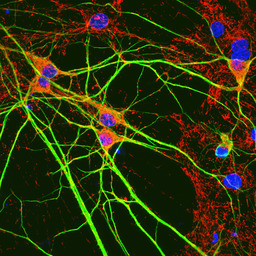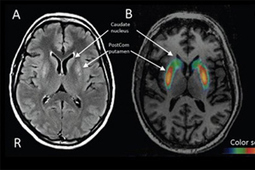Clinicians who treat patients with chimeric antigen receptor T cells have become adept at identifying and treating acute neurotoxicity, a common adverse event associated with the therapy.Researchers from Mount Sinai published a case study in Nature Medicine about a patient who developed neurocognitive and hypokinetic movement disorder with features of Parkinson’s disease after receiving

|
Scooped by BigField GEG Tech |




 Your new post is loading...
Your new post is loading...











Clinicians treating patients with CAR T cells have become adept at identifying and treating acute neurotoxicity, a common adverse event associated with the therapy. Researchers at Mount Sinai published a case study in Nature Medicine of a patient who developed a neurocognitive, hypokinetic movement disorder with features of Parkinson's disease after receiving the CAR-T therapy targeting the B-cell maturation antigen (BCMA) called ciltacabtagene autoleucel in the CARTITUDE-1 clinical trial. Since reports of this toxicity have not been observed with CD19-directed CAR-T therapies for other blood cancers, it appears to be specifically associated with BCMA-directed CAR-T. As it turns out, Parekh and colleagues found that BCMA is expressed on certain brain cells, and they saw evidence that BCMA-targeted CAR-T cells entered the patient's cerebrospinal fluid and crossed the blood-brain barrier. With ciltacabtagene autoleucel poised to become the second BCMA-directed CAR-T to gain commercial approval later this year, clinicians should discuss the potential benefits and risks of the therapy with their patients. They also need to be vigilant about screening for late neurological toxicities until researchers can make improvements to the new CAR-T constructs to mitigate the risk.